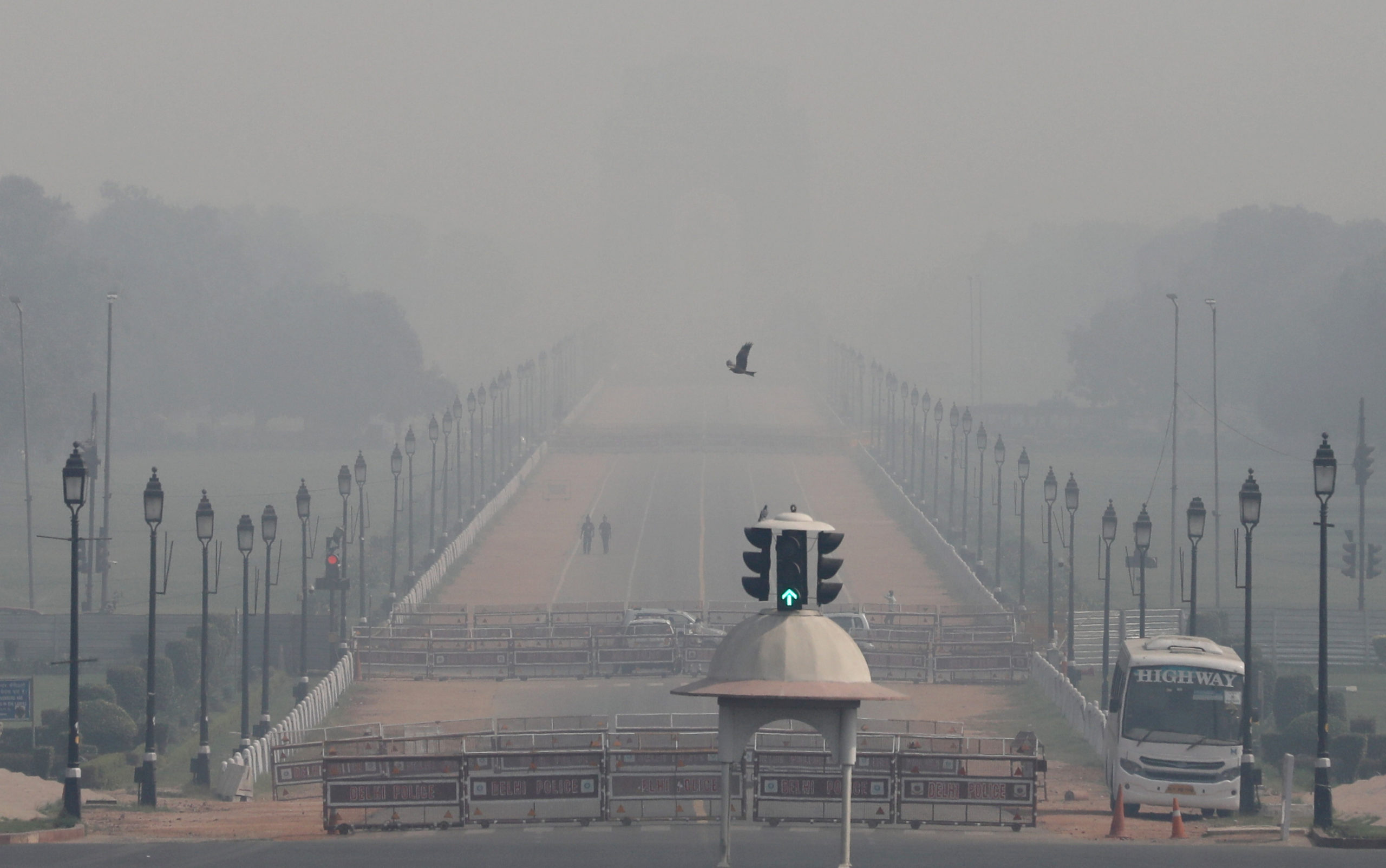
FILE PHOTO: People walk near India Gate on a smoggy morning in New Delhi, India, October 22, 2020. REUTERS/Anushree Fadnavis
NEW DELHI — Top doctors in New Delhi are reporting a jump in respiratory problems among its residents, coinciding with the onset of peak pollution season in India’s capital and raising concerns about complications for COVID-19 patients.
Doctors from five different Delhi hospitals told Reuters they have received twice the number of patients with respiratory illnesses such as bronchitis in the past two weeks.
Dust and smoke fill Delhi’s air every winter, making breathing difficult for adults and children alike. Government data reviewed by Reuters shows that air quality this October has been worse than in the same month in 2019 and 2018.
“Pollutants have an inflammatory effect on the lungs and so does COVID-19,” said Dhiren Gupta, a pulmonologist at Sir Ganga Ram Hospital in the city, which has reported more than 340,000 coronavirus cases.
There has not been any study in India to ascertain whether pollution leads to more severe complications among patients infected by the novel coronavirus. But a study by the Harvard T.H. Chan School of Public Health in the United States found that long-term exposure to fine particulate matter known as PM2.5 increased the risk of death from COVID-19.
“We are getting more number of cases with respiratory issues but we have to run COVID-19 tests on them too,” said Hema Gupta Mittal, a senior pediatrician at Ram Manohar Lohia Hospital.
Delhi had a record spell of clean air earlier this year after the government imposed a strict nationwide lockdown to curb the coronavirus outbreak but air quality has deteriorated in the last two months.
In October, the air quality index (AQI) has averaged a “poor” 227 on a scale of 500, well above the “safe” limit of 60.
The index measures the concentration of pollutants finer than 2.5 microns in diameter that can reach deep into the lungs and cause deadly diseases including cancer and cardiac problems.
Delhi’s Environment Minister Gopal Rai said the government was working to clear the toxic air by restricting construction and other dust-raising activities.